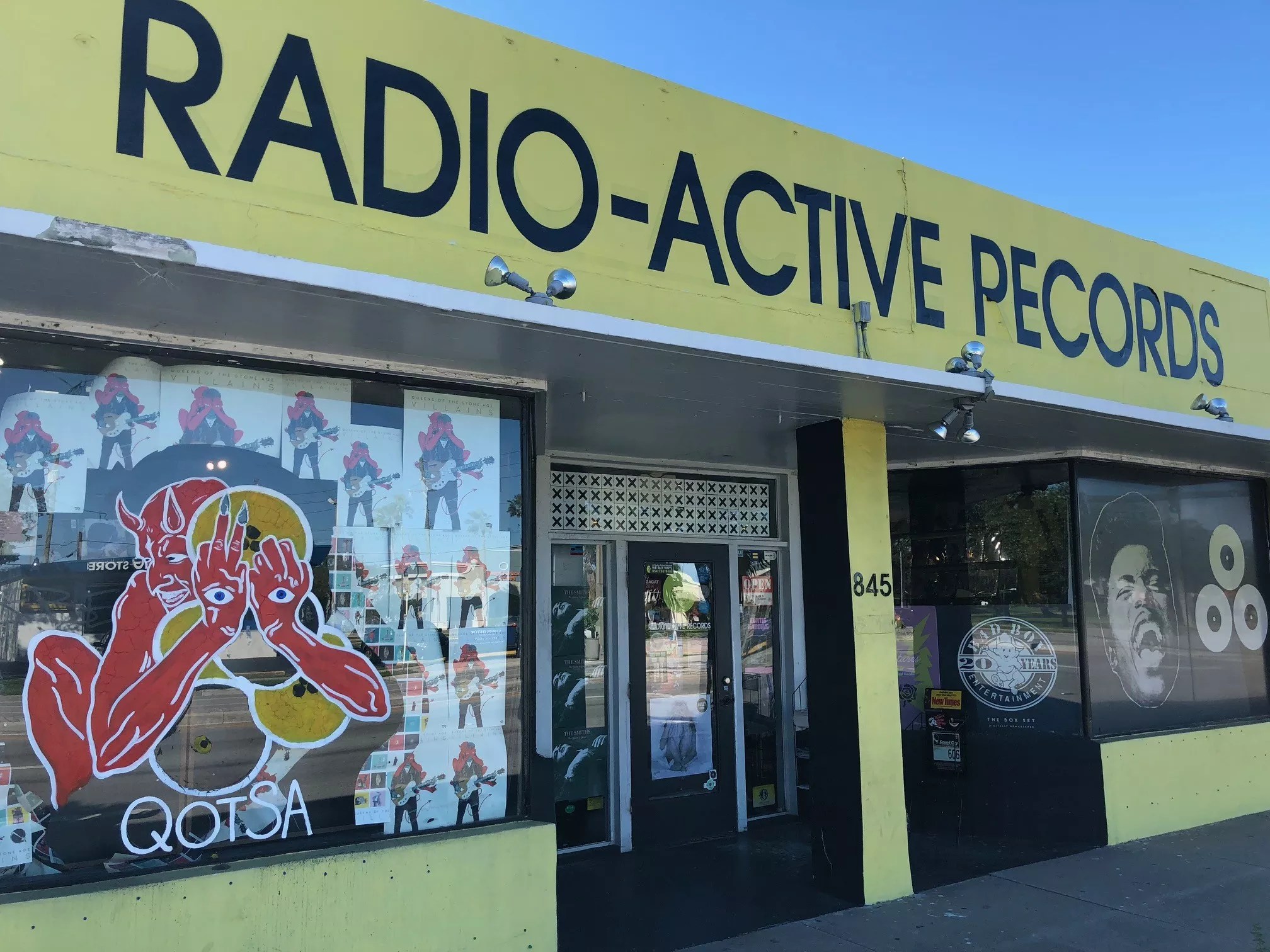
Photo courtesy of Radio-Active Records

Audio By Carbonatix
Low-interest loans for small-business owners hit by COVID-19 were announced by the U.S. Small Business Administration this week, but some area business people fear the offers won’t help. Lolo Reskin, owner of Miami’s Sweat Records, is among them.
“Small-business loans can be great when you are selling something with a high markup, like alcohol, where you can make that money back to repay the loan,” Reskin says.
For small businesses such as record stores, which operate on tight margins in a niche market – but with a dual role as unofficial community center – there is no clear route to repayment. One of the only for-profit entities to have received grants from the Knight Foundation, Sweat Records has long been focused more on mission than profits.
“In the top ten reasons why we opened Sweat Records, making money wasn’t up there,” Reskin says. “We wanted to make a space for our community and have a great selection of records and turn people on to stuff, but we still have employees and bills, and we will do whatever we can to stay open.”
Fort Lauderdale’s Radio-Active Records, now in its 25th year, has also had to be versatile to survive in a fickle market. General manager Natalie Smallish is proud of the store’s dynamism. “We’ve been around for so long that we’ve had to wear a lot of different hats to survive. We’re very aware that you have to go through different phases as a business and stay relevant,” she says.
Before COVID-19, Smallish admits, the three-person-run store had never put much effort into e-commerce. While the store had a website, last week saw all hands on deck in an intense race to update the online store, which is now responsible for 100 percent of company sales.
“It’s been a lot of work for [general manager] Gunther Schenk and me. We’ve been tag-teaming everything,” Smallish says. “He’s been getting all of our wall pieces and rare stuff on there, and I’ve been working on getting all the new releases and preorders on our website and eBay.”

Sweat Records is open for business, now slinging records exclusively by mail order.
Photo by Olivia McAuley
Similarly, Sweat owners Lolo Reskin and Emile Milgrim are the only bodies left at Sweat, doing what they can to keep the store afloat until the crisis blows over. As the pandemic took hold and its impact on businesses mounted, Reskin immediately began to organize. Forced to furlough seven part- and full-time employees (full disclosure: I was employed at Sweat Records before the crisis hit), she reached out to Sweat’s landlords, but was quickly told no leeway would be afforded to the business. Reskin says she has also begun to ask vendors for payment extensions.
The issue is that these temporary stopgaps lead to mounting debt. “We don’t want $50,000 more debt. We’d have to sell an insane amount of records to make that back,” Reskin says.
There is a compounding issue for record stores. Like St. Patrick’s Day for bars and Black Friday for retailers, record businesses have one huge sales day every year, which can account for a sizable chunk of their annual take. This year’s Record Store Day, originally scheduled for April 18, has been postponed until June 20. Organizers concluded that “this gives stores around the world the best chance to have a profitable, successful Record Store Day, while taking into consideration the recommendations of doctors, scientists, the World Health Organization, Centers for Disease Control, and the need to be good citizens of both local and worldwide communities.”
It’s clearly the right thing to do. But for Reskin, the impact is enormous: “Like Christmas being canceled.”
Started in 2008 to promote special limited-edition releases, Record Store Day has turned into an unofficial international celebration with hundreds of thousands of participating stores. Insiders and industry folk refer to “The List” of limited-release, collectible, and novelty vinyl slated to be dropped. While there is always some flux in what ends up on the List, this year’s uncertainty is adding to existing worries. Some artists have said they will postpone their releases, but it’s unclear how many will decide not to wait and whether a critical mass of special releases will drop on the big day.
“I agree with what they did,” Smallish says. “The way I see it is that it’s a blessing and a curse. We’ll have more time to promote it, and maybe we can think of something even cooler to do for it, but there are downsides.”
Meanwhile, it is far from certain that the financial helplines on offer will help record stores navigate a period of prolonged pressure, as these unconventional business models struggle to find a path forward and adapt to highly unpredictable conditions.